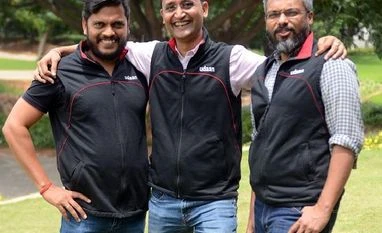Udaan, the business-to-business e-commerce start-up, has filed a complaint against India’s largest biscuit maker Parle Products before the Competition Commission of India (CCI). In its complaint, Udaan has alleged that Parle is abusing its dominant position by refusing to supply its fast-moving products directly to the Bengaluru-based firm, without any objective justification.
Parle is a dominant player in the market for glucose biscuits in India. Its Parle-G biscuit is a ‘must-stock’ item for small and medium retailers and for platforms such as Udaan.
Udaan has said it is relegated to purchasing Parle products from the open market, causing a competitive disadvantage, compared to other existing distributors of Parle, who could directly procure biscuits from Parle. This results in decreasing competitiveness and increasing input costs for Udaan, and consequently, the small retailers who procure products from Udaan.
Parle’s continued refusal to supply Parle-G stock-keeping units to Udaan makes it a clear case of refusal to deal and is an abuse of dominance under Section 4(2) of the Competition Act, stated the complaint.
An email query to Parle remained unanswered till the time of going to press. A spokesperson for Udaan declined to comment on the development.
In the complaint, Udaan has alleged that the selective course of agreement of Parle with selected distributors and denial to deal with Udaan directly and forcing it to buy products from Parle’s distributors in the open market is a case of ‘constructive refusal to deal’ and anti-competitive in terms of Section 3(4) of the Competition Act, having appreciable adverse effect on competition in India.
Udaan has alleged it tried to engage with Parle for the last 24 months to work this out in a "fair and justified” manner, but Parle has continued to discriminate.
Recently, CCI imposed a fine of Rs 200 crore on the country’s biggest carmaker Maruti Suzuki India (MSIL) for anti-competitive practices related to how it forced dealers to discount cars. The CCI order in August contained extracts of several emails exchanged between dealers and Maruti executives, which made it “evident that the discount control policy was controlled” by MSIL and not its dealers.
Udaan’s strong supply-chain network in the fast-moving consumer goods sector has a coverage of 50 cities. The overall supply network spans over 900 cities, covering over 12,000 pincodes. The firm has said it not only ensures timely delivery, but also provides quality and fresh products to buyers at a better price.
Traditionally, wholesalers are the most profitable players in the market ecosystem. Retailers would make very less margins, whereas wholesalers would enjoy far higher returns on capital. By introducing efficiencies into the market through digital transformation, Udaan has said it has created a level playing field.
In the complaint before CCI, Udaan has said that Parle is dominant in the market for glucose biscuits in India, with a market share of a staggering 83 per cent in the relevant market of glucose biscuits in India.
Parle produces a range of more than 150 products and has successfully established 36 industry-leading brands. It has also extended its presence beyond Indian shores, selling across more than 21 export destinations around the world. Among all the marketed biscuit brands of Parle, its glucose biscuit offering Parle-G contributes more than 50 per cent to its total turnover, which also happens to be the largest-selling biscuit brand in the world.
Despite Udaan’s consistent efforts to urge Parle to deal with Udaan in good faith and on terms on a par with general market practices, Udaan has been unable to secure fair treatment and parity from Parle.
All this while, Udaan has alleged that Parle has been directly dealing with other distributors considered Udaan’s competitors for Parle products.
Udaan has argued that existing retailers would be forced to procure Parle products from the incumbent distributor network of Parle. Such retailers may altogether shift from the Udaan platform. They may align with traditional distributors for the relevant market to avoid dealing with multiple upstream suppliers.
“Therefore, if Udaan is not given access to the said market on the same terms as its competitors, Udaan may have to exit this market altogether,” it said in the complaint, adding, “This implies that Udaan will remain foreclosed from more than 83-85 per cent of the relevant market.”
Unlock 30+ premium stories daily hand-picked by our editors, across devices on browser and app.
Pick your 5 favourite companies, get a daily email with all news updates on them.
Full access to our intuitive epaper - clip, save, share articles from any device; newspaper archives from 2006.
Preferential invites to Business Standard events.
Curated newsletters on markets, personal finance, policy & politics, start-ups, technology, and more.
)